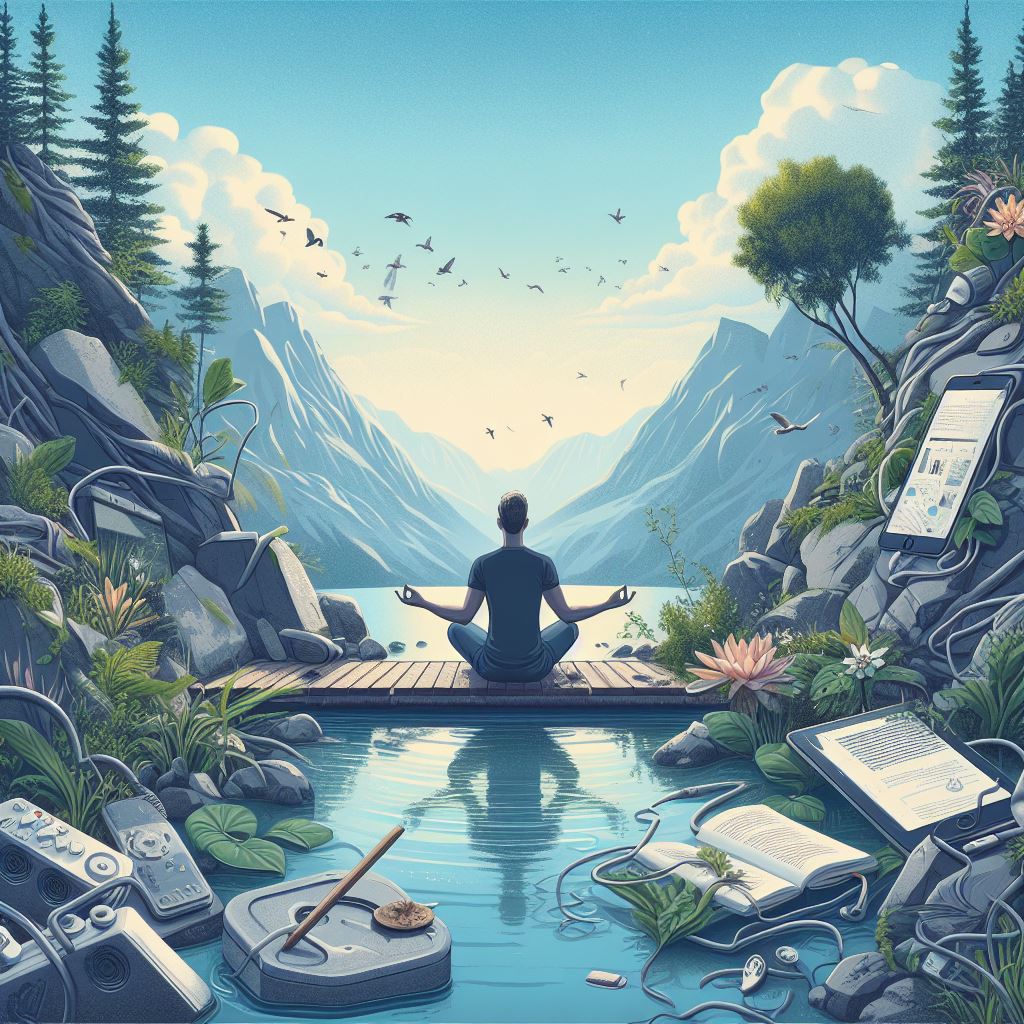
A Guide to Successful Digital Detox in a Connected Age
In today's hyper-connected world, the relentless barrage of notifications, messages, and updates can become overwhelming. The term "digital detox" has emerged as an antidote to the digital overdose many experience. But what does it entail? How can one disconnect in an age where connectivity is the norm?
1. What is Digital Detox? The Definition and Its Importance
Digital detox, synonymously known as a technology cleanse or digital break, refers to a period of time during which an individual deliberately refrains from using electronic devices such as smartphones, tablets, computers, and social media platforms.
Why is it Vital?
- Mental Health: Extended screen time has been linked to sleep disturbances, increased stress, anxiety, and depression. A detox aids in resetting our minds and alleviating these symptoms.
- Productivity: Unplugging can lead to better focus, creativity, and overall work output.
- Quality of Life: By disconnecting, individuals often reconnect with real-world activities, nature, and human relationships.
"In today's rush, we all think too much — seek too much — want too much — and forget about the joy of just being." - Eckhart Tolle
2. The Science Behind the Screen: Evidence on its Impact
Research consistently underscores the negative impact of excessive screen time on mental well-being.
- Sleep Disruption: According to peer-reviewed journals, the blue light emitted by screens can suppress melatonin production, a hormone responsible for sleep regulation.
- Mental Fatigue: Continuous multi-tasking between apps and notifications can lead to cognitive overload.
- Decreased Social Skills: An offline period often highlights how screen dependency can erode face-to-face communication skills.
3. Crafting a Successful Digital Detox: Steps and Strategies
Steps for a Successful Digital Detox
- Self-awareness: Recognize and accept the need for a detox. Reflect on your screen habits.
- Planning: Decide on a detox duration. It could be as short as a few hours or extend to weeks.
- Notification Management: Turn off non-essential notifications.
- Boundaries: Designate tech-free zones in your home or workspace.
- Reconnect: Engage in offline hobbies and activities.
- Re-evaluation: At the end, analyze the benefits and how you felt during the detox.
Strategies for Reducing Screen Time
- Scheduled Breaks: Allocate specific times in the day for a screen break.
- Single-tasking: Focus on one digital task at a time.
- Tech-free Meals: Ensure meals are a time for human interaction, devoid of screens.
- Use Tools and Apps: Employ tools like "Screen Time" on iOS or apps like "Freedom" to monitor and restrict device usage.
4. In Their Words: Testimonials and Case Studies
Jane, a 28-year-old professional, shares her experience: "The constant connectivity was burning me out. My first digital detox was a weekend-long. The initial anxiety gave way to peace, and by the end, I felt rejuvenated."
In a case study by Digital Detox Solutions, a group of professionals underwent a 7-day detox. The results? A 60% increase in productivity and a marked reduction in stress levels.
5. The Challenges and Solutions
Digital Detox Challenges in a Connected Society
- Fear of Missing Out (FOMO): The anxiety that an exciting event may be happening elsewhere, often aroused by social media posts.
- Work Commitments: In professions demanding constant online presence.
- Social Pressure: Being always available is often equated with being efficient or caring.
Overcoming the Challenges
- Scheduled Check-ins: Allocate limited times to check emails or social media.
- Communication: Inform peers and colleagues about your detox plans.
- Stay Informed: Instead of continuous updates, opt for daily news digests.
6. Tools to Assist in Your Digital Detox Journey
- StayFocusd: Limits the time spent on time-wasting websites.
- Flipd: Locks your phone for a set period.
- Offtime: Provides insights into your smartphone usage and allows blockage of apps, calls, and texts.
Conclusion
Embarking on a digital detox in our connected society may seem daunting. But with the right strategies and tools, it's achievable. The benefits - from improved mental health to better interpersonal relationships - are manifold.
"Almost everything will work again if you unplug it for a few minutes, including you." - Anne Lamott
Whether you're a professional seeking work-life balance, a parent setting tech boundaries, or someone overwhelmed by the digital world, remember: It's not about disconnecting from technology, but reconnecting with life.
Motivational Topics




